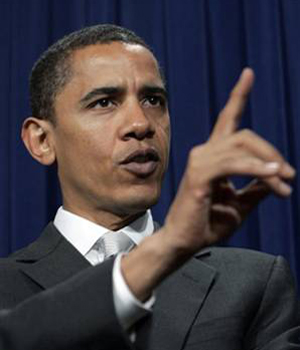US Politics: Beyond the Budget Dispute, A Crisis in Health Care
 The starting point for the health care debate is that the US spent nearly $2.2 trillion, or $7,400 per person, on health care in 2007. To put that in context, $2.2 trillion is double the total of discretionary spending, which includes defense, in 2010, and itrepresents 16% of America's annual GDP.
The starting point for the health care debate is that the US spent nearly $2.2 trillion, or $7,400 per person, on health care in 2007. To put that in context, $2.2 trillion is double the total of discretionary spending, which includes defense, in 2010, and itrepresents 16% of America's annual GDP.
Those numbers and percentages have been been rapidly rising in real terms over the last 40 years. The US spent $714 billion on health care in 1990 and $253 billion in 1980; as a share of GDP, health care has increased from 7.2% in 1970 to a projected 20.3% in 2018.

 Wednesday, March 30, 2011 at 8:07
Wednesday, March 30, 2011 at 8:07




